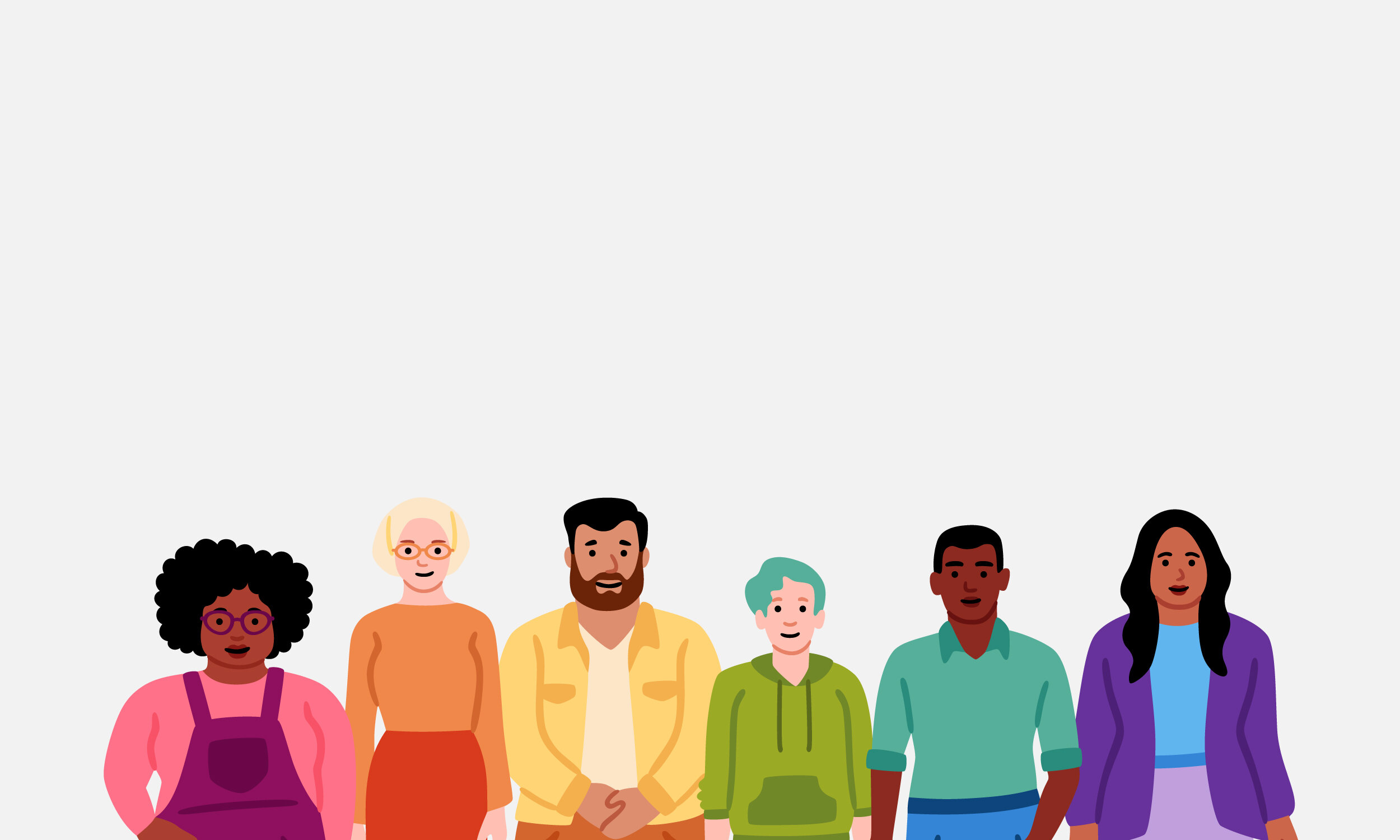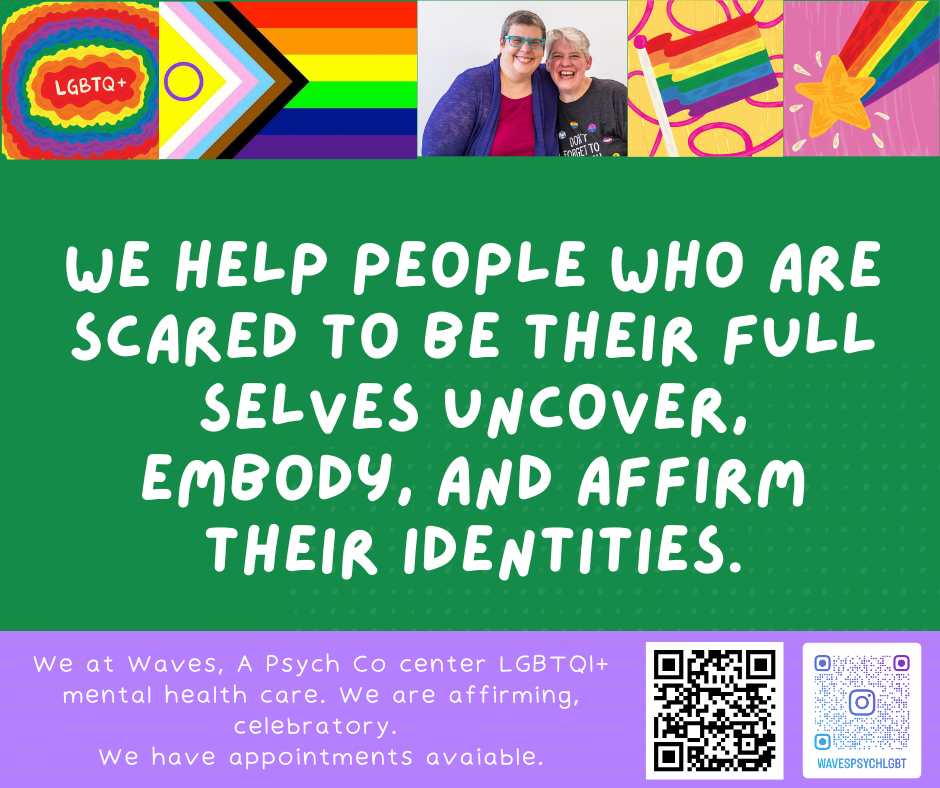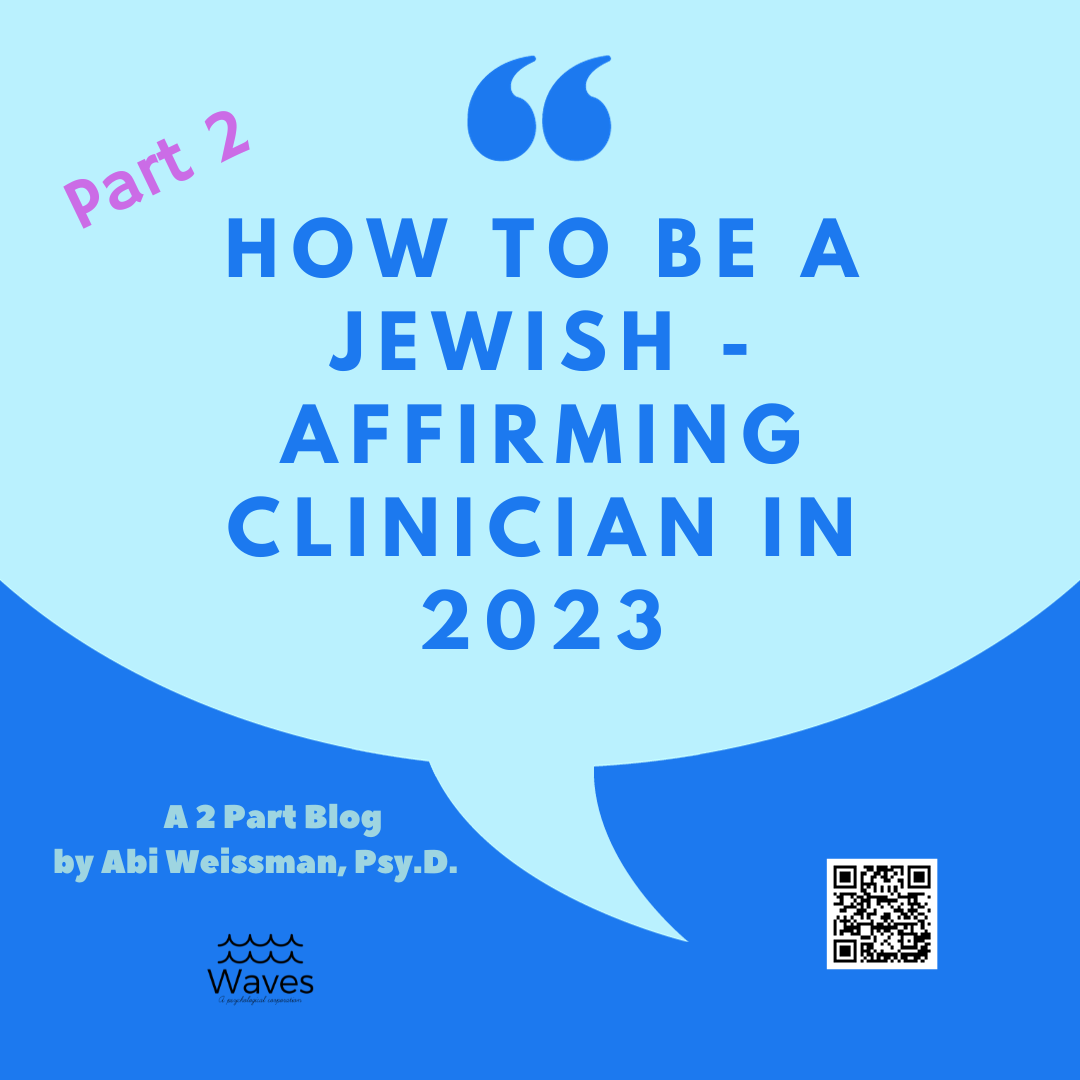
Waves Blog
Being Trans: Personally and Professionally
“Personally
“I find it difficult to be trans identifying at this momemt. Personally that is.”
6 Ways To Celebrate Pride 2025
I feel that it is an act of bravery to post a freakin’ LGBTQ+ flag in the USA.
It is so vital to see people experiencing Pride. I didn’t realize how shut off from the outside world I’d been. There, I felt like I could be my full Jewish and Queer self.
Deepening Our Expertise - Trans Mental Health
Yay! Dr. Abi Weissman has now earned a WPATH Global Education Institute Certification.
Passover 2025
It’s Passover now. 8 days of unleavened bread. This year I decided to eat Kiniyot and eat in a more of a Sephardic style than I usually do.



















